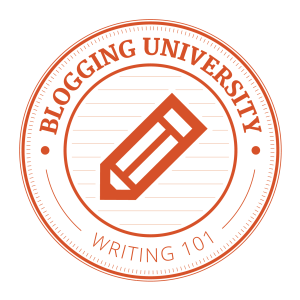Moving right along in One Zentangle a Day, I am at Day 23. Today’s new Zentangle pattern is Kathy’s Dilemma. Instead of a second official or unofficial motif, a vine tangleation of Flux is introduced–except that I have been using this modification for some time.
Rather than create a new tile today, I want to pose a question: What is the dilemma in this pattern? In Rick’s Dilema, there is a paradox; the mind perceives a curve where there are nothing but straight lines coming together. Is the dilemma that the triangles with filled in curves at the corners give the illusion that the white space is the shape? That is, that the triangles “disappear” into the background of the dotted foreground, leaving the eye to see only the white shape within the triangles?
Oh. OK. I guess I get it now. I didn’t see the “negative effect” before.
Kathy’s Dilemma makes me wonder how often I see either the foreground or the background–but not both at once–in any given situation? When an image is in front of me, I can generally make sense of any “dilemma” produced by or within it. Often it’s just another optical illusion. But when I think about social or behavioral activities or events, I wonder what I actually perceive. All my life I have tried to see all sides of a situation, with overall more success than failure. My responses are not always in line with others’ perceptions, but that’s probably because I am so busy focusing on one object or event that I forget that those around me may be perceiving something different altogether. When I was younger, I was more able to suppress my reactions. Now, as I approach the natural end of my life, I seem to have lost the ability to self regulate. Oh, not in everything or anywhere; just in relatively familiar circumstances–those where I feel relaxed, or safe. The dilemma here is that it is not always safe–not from judgment by those who do not know me intimately. At least those who know me well feel free enough to ask what I am talking about. Not everyone feels this is socially appropriate. My dilemma is that I don’t always know that there is a dilemma or negative space (as in the negative image of a photograph, not the unfavorable connotation type of negative).
The remarks I make or questions I pose may seem like babble, but they are not. How well do we assess our surroundings? How accurately do we perceive the world around us? How good are we at figuring out if we are “safe” with the people around us, that we can say almost anything without being unduly or harshly judged? There are many people who can instantly assess their environment accurately and respond accordingly, always correctly. I am not one of them. It doesn’t take too long for me to “get it;” just long enough that by the time I assess, it is often too late. Unintended damage has been done, and there is no way to undo it.
This dilemma causes another dilemma: Do I never make a comment or ask a question? or do I do what has become natural? Do I continue to try to decide if I can safely respond and let the moment pass? I don’t know. Maybe I will never know. Just like Kathy’s Dilemma can change one’s perception of a drawing, so maybe my remarks can change someone else’s perception of a situation. Is a comment worth the risk? Maybe I am just too old for this…
Happy tangling!
##
#educ_dr






I have to admit, I never heard of a zen tangle before witnessing your zen tangles. I’ve been trying to create infinite Celtic/Nordic knots, so found myself drawn to your images. I like the questions you’ve posed, I think they are important. Questions help in challenging fixed perspectives without the imposition of another fixed perspective. Enjoyed this post.
Thank you. Celtic knots are a wonderful idea! Can’t wait to see what you come up with. I enjoy your posts and graphics.